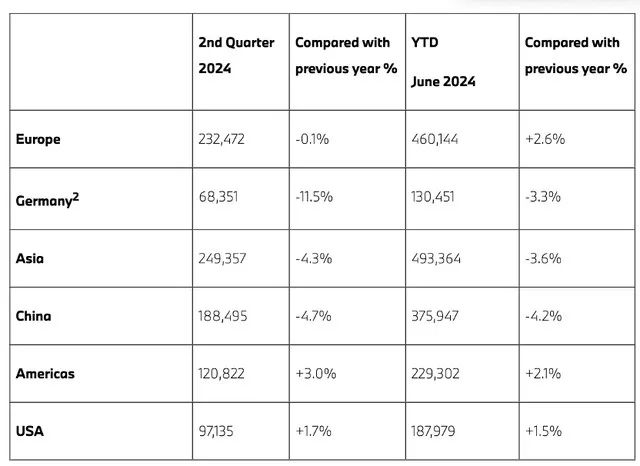一、字符串哈希
1.1 基本概念
字符串哈希 将不同的字符串映射成不同的整数。
思想:将字符串映射成一个 p进制数字。
我们定义如下哈希函数:
h
a
s
h
(
s
)
=
∑
i
=
1
n
s
[
i
]
×
p
n
−
i
(
m
o
d
M
)
其中
s
为长度为
n
的字符串,下标从
1
开始
\begin{align} & hash(s) = \sum_{i=1}^{n}s[i]\times p^{n - i} (mod \ M) \\ & 其中s为长度为n的字符串,下标从1开始 \end{align}
hash(s)=i=1∑ns[i]×pn−i(mod M)其中s为长度为n的字符串,下标从1开始
例如:p = 131,s = abc,其哈希值为
97
×
131
2
+
98
×
131
+
99
97 \times {131}^2 + 98 \times 131 + 99
97×1312+98×131+99
显然,有时会存在多个不同的字符串哈希值相同的情况,我们通常的处理策略是巧妙设置p和M的值,往往取p为某个质数,M为某个大质数。
关于 p 的选择:常见的有131、31、13331等。
关于 M,由于 M 我们要取一个比较大的质数,而出题人往往对一些比较经典的质数如1e9 + 7、998244353等构造一堆卡哈希的数据,所以我们往往通过捕获一个随机数,根据随机数往下再取质数,来尽可能避免被hack。
还有的处理方式如:双模数hash,甚至三模数hash,虽然有一定作用,但是运算多了之后,时间复杂度的常数自然增大。
下面只介绍自然溢出法的单hash和双hash以及随机模底hash,多了也没必要,字符串哈希往往是作为算法优化的某一步骤,如果双hash都能被卡,说明题目可以采取其它优化策略,如:AC自动机、SA等。
1.2 实现方式
1.2.1 单hash(自然溢出法)
constexpr int base = 131;
std::vector<size_t> h(n + 1);
for (int i = 0; i < n; ++ i) {
h[i + 1] = h[i] * base + s[i];
}
1.2.2 双hash(自然溢出法)
constexpr int base = 131;
std::vector<size_t> h1(n + 1), h2(n + 1);
for (int i = 0; i < n; ++ i) {
h1[i + 1] = h1[i] * base1 + text[i];
h2[i + 1] = h2[i] * base2 + text[i];
}
1.2.3 随机模底hash
随机模底哈希就是用随机数来生成base,同时抛弃自然溢出法,采用对一个大质数取模。
由于往往用时间戳生成随机数,所以被hack的几率也较小。但是,字符串哈希始终是有风险的。
std::mt19937 rng(std::chrono::steady_clock::now().time_since_epoch().count());
const int P = findPrime(rng() % 900'000'000 + 900'000'000),
base = uniform_int_distribution<>(8e8, 9e8)(rng);
std::vector<int> h(n + 1), p(n + 1);
p[0] = 1;
for (int i = 1; i <= n; ++ i)
p[i] = 1LL * p[i - 1] * base % P;
for (int i = 0; i < n; ++ i) {
h[i + 1] = (1LL * h[i] * base % P + text[i]) % P;
}
1.3 滚动hash
滚动哈希解决的问题:对于一个字符串,我们如何O(1)获取任意子串的hash值?

如上图,我们要获取蓝色部分的hash值,我们用类似前缀和的方式可以获取:
h(s(5, 8)) = h(8) - h(4) * base ^ 4
这种获取子串hash值得方式我们就称为滚动哈希。
1.4 OJ 练习
1.4.1 模板
P3370 【模板】字符串哈希 - 洛谷 | 计算机科学教育新生态 (luogu.com.cn)
#include <bits/stdc++.h>
using i64 = long long;
bool isprime (int x) {
if (x <= 1) return false;
for (int i = 2; i * i <= x; ++ i)
if (x % i == 0)
return false;
return true;
}
int findPrime (int x) {
while (!isprime(x))
++ x;
return x;
}
void solve() {
std::mt19937 rng(std::chrono::steady_clock::now().time_since_epoch().count());
const int P = findPrime(rng() % 900'000'000 + 900'000'000), base = std::uniform_int_distribution<>(8e8, 9e8)(rng);
int n;
std::cin >> n;
std::vector<int> a(n);
for (int i = 0; i < n; i ++ ) {
std::string s;
std::cin >> s;
int h = 0;
for (char ch : s)
h = (1LL * base * h + ch - '0') % P;
a[i] = h;
}
std::sort(a.begin(), a.end());
a.resize(std::unique(a.begin(), a.end()) - a.begin());
std::cout << a.size();
}
int main() {
std::ios::sync_with_stdio(false);
std::cin.tie(nullptr);
std::cout.tie(nullptr);
int _ = 1;
// std::cin >> _;
while (_ --)
solve();
return 0;
}
::cout.tie(nullptr);
int _ = 1;
// std::cin >> ;
while ( --)
solve();
return 0;
}



















